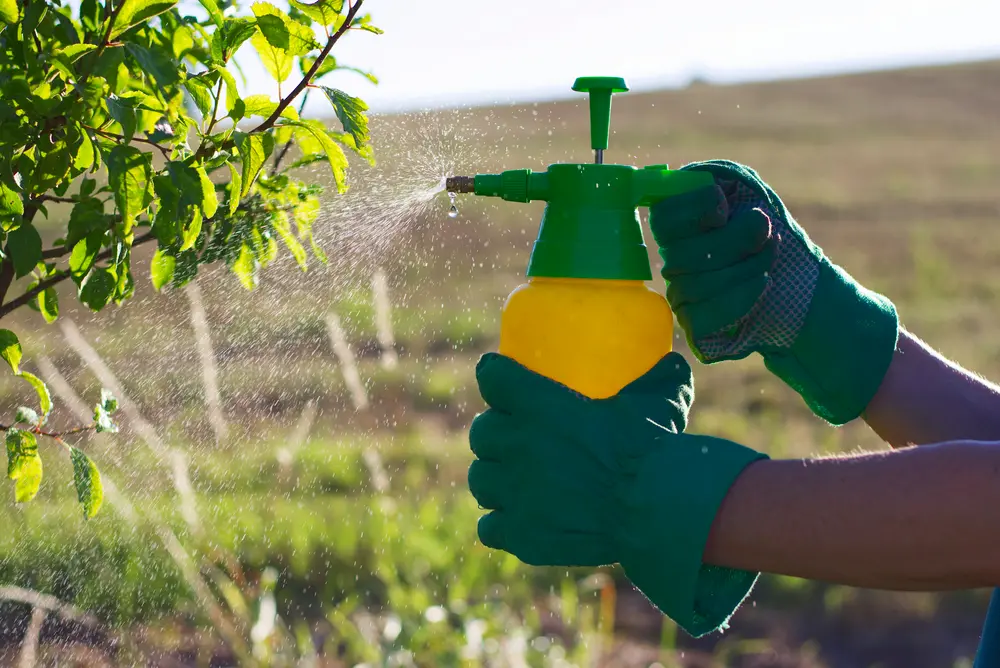
We all know pesticides kill insects, weeds, and harmful insects detrimental to our beloved crops. Therefore, pesticide is a collective term for both herbicides and insecticides, which can be sprayed on a garden to prevent infestation of pests and diseases. However, what if these pesticides are toxic for humans too? Moreover, below is a list of pesticides you should be avoiding.
- Algicides for controlling algae
- Fungicides for the control of fungi or oomycetes
- Herbicides used for controlling weeds in the garden
- Insecticides for the control of insects like thrips or aphids.
We also have nematicides, acarcides, and rodenticides, used for controlling nematodes, mites, and rodents.
Dangerous Nature
Continuous use of these pesticides in the garden has been found to have adverse effects on humans and animals. These chemicals may cause mild irritations on areas of exposure to very acute effects such as breakdown of the nervous system, reproductive health problems, or cancer. In this regard, a study by the World Health Organization found out that dangerous exposure to pesticides among farm workers in the developing world, resulted into very acute poisoning annually. Such kinds of workers who were reported to be at risk to these hazardous chemicals included: grounds men, those involved in fumigation, and pet groomers.
Those pesticides that are highly hazardous or dangerous at the same time are those that have a potential for high risk levels to the environment. These hazardous pesticides usually are above the international stipulated levels of usage.
Highly hazardous pesticides also known as HHP’s have recently become a global concern. This is due to their widespread use, which has led to hazardous exposures to humans, whether it is by means of occupational, intentional, or accidental types of exposures. Products, which are normally used for domestic purposes like in gardens, normally have weaker ingredients compared to professional ones. This then means that they will have lower HHP’s. However, in most developing countries, where regulations governing pesticide use are weaker, pesticides with higher residual levels are normally substituted with weaker ones for domestic use.
Effects on the Environment
Any use of a pesticide or combination of pesticides can also have adverse effects on the environment. To that effect, researchers have also ascertained that when these chemicals are used, whether in large scale farms or home gardens, certain percentages lead to a spillover, rather than reach their target. The spillover might end up contaminating the air, soil, or water. This is can be due to a drift in the pesticide particles being carried over by wind to other areas, therefore, leading to the contamination of air in these hitherto areas.
Other than the contamination of these vital areas, nectars from flowers can also end up getting contaminated, which in most cases, affects our biodiversity. This can strain the environment, and endanger species like bees or birds. Dangerous levels and over use of pesticides can in most cases, lead to resistance by insects. This necessitates larger doses, leading to further degradation of the environment.
Despite playing a very important role in the control of pests, and improving crop yield in large scale farming or small gardens, pesticides can remain in the soil or water for many years. Moreover, the effects of pesticides on the global scene is a great concern for many. Even though they help to combat diseases on our farms and gardens, their continuous use have also led to very dangerous and hazardous levels of exposure to the environment, leading to degradation.
Toxin Transfer to Humans
A pesticide’s toxicity level is normally dependent on its functions. That is why insecticides are always deemed to be more poisonous as compared to herbicides. Therefore in this regard, those who are usually at greater risk of exposure of any pesticide are the people who use them either in the farms or garden. Studies have also found out that in most circumstances, the level of effect depends on the amount upon which an individual has been exposed to.
Another factor on how the toxins from pesticides can be transferred to humans is the route or manner. It can be through a variety of ways including, swallowing, inhaling, or direct contact with a particular pesticide. Thus, in the end, it might lead to adverse effects like poisoning, or in some cases, long term effects like reproductive health issues or diseases like cancer, vomiting, nausea, fatigue, blood disorders due to mutation of cells, and death in extreme cases.
If you want to ensure elimination of toxins from your produce, then it important that you grow your own food organically using naturals ways of pest control. This includes fruits and vegetables, which might lead to high levels of pesticide control like apples or kales.
To conclude, when pesticides are used to increase food production in our farms, or home gardens, their use should always comply with the set rules and regulations. This will ensure safety of our gardens and the environment as a whole. Farmers should always adhere to the set amounts of pesticide use to limit the amount of exposure.
